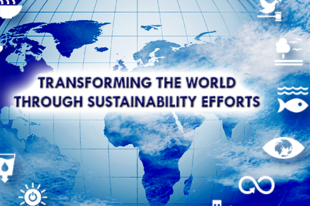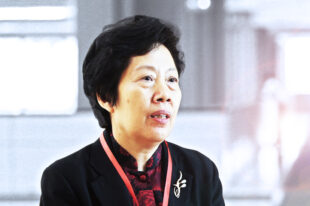Enhancing Operations Contributes to the Agility and Resilience of Supreme Audit Institutions

It is imperative that SAIs use the tragic disruption of the COVID-19 pandemic to assess and enhance their operations, better fulfill their responsibilities to the public, meet the demands of stakeholders, and prepare for future crises.
by Ms. Sibongiseni Ngoma, Head of Audit: National Audits, Auditor-General South Africa
As difficult as the COVID-19 pandemic has been, one of its gifts is the opportunity to reflect on progress made and prepare for the challenges that lie ahead. With staff that are experiencing the impact of the pandemic on a daily basis, leaders of Supreme Audit Institutions (SAIs) must first and foremost prioritize health and safety. However, to ensure business continuity and stay relevant during the crisis, and to build a future-fit institution, SAI leaders also need to consider how best to enhance operations in response to changing conditions. At Auditor-General South Africa (AGSA), we have taken key steps to do just that, including instilling a new organizational culture and establishing a multidisciplinary forum to coordinate the work of the SAI while responding to the pandemic in real time.
AGSA, in welcoming Ms Tsakani Maluleke—the first female Auditor-General in its 109-year history—also ushered in a new organizational culture, one that has at its heart the wellbeing of its employees. Our values—caring for each other, building trust, doing the right thing, and excelling in all we do—underpin the operational changes we have made.
AGSA’s new multidisciplinary forum, which comprises leaders from our audit and support functions, has implemented an array of COVID-19 strategies, such as measures to ensure business continuity, protect our staff, and streamline and enhance our policies and procedures. These strategies have enabled us to build on the resilience and commitment of our leaders and employees, putting us in a good position to respond to the needs of the government and the country.
One of our most significant accomplishments during the pandemic was conducting real-time audits of COVID-19 relief spending by government departments and agencies, and publishing three special reports with our findings and recommendations by the end of June 2021. These reports clearly confirmed the risks related to the government’s pre-existing internal control weaknesses and fragmented information systems.
If anything, these risks were more evident in times of crisis and resulted in more leakage from the Public Financial Management system. The real-time nature of our findings empowered the government to take immediate actions, such as improving controls and recovering monies.
In order to conduct real-time and remote audits—both of which were a first for AGSA—we modernized our audit operations, with the help of consultations and benchmarking with other SAIs and private audit firms. We provided staff with Virtual Private Network (VPN) connections, audit software, and technical audit guidance, so that they could work and collect evidence remotely. We also disseminated COVID-19 best practices and implemented safety measures at the workplace and at auditee premises, enabling us to minimize possible exposure to the virus and quickly report COVID-19 cases.
AGSA has also implemented a remote work policy, both to ensure business continuity during the pandemic and anticipate the future of work. This policy helps management and employees navigate the hybrid model of working both from the office and remotely, while ensuring productivity, connectivity, collaboration, and access to resources.
During this difficult period, we have found that these operational enhancements have had a positive effect not only on the productivity of our business units, but also on employees’ wellness.
For even greater impact, AGSA has paired these internal operational changes with intensified outreach to stakeholders. We have participated in a COVID Fusion Center, established by our President, which allows us to share the early results of audit activities with government and law enforcement. By communicating quickly and effectively, we are able to inform decisions, share fraud risk indicators, and avoid duplication of efforts. We have also engaged more deeply with civil society organizations, which provide valuable insights into citizens’ first-hand experiences of government emergency responses.
The resilience of SAIs and agility of their workforce are key to holding government entities and officials accountable for using public funds for the good of the country. It is imperative that SAIs use the tragic disruption of the COVID-19 pandemic to assess and enhance their operations, better fulfill their responsibilities to the public, meet the demands of stakeholders, and prepare for future crises.





